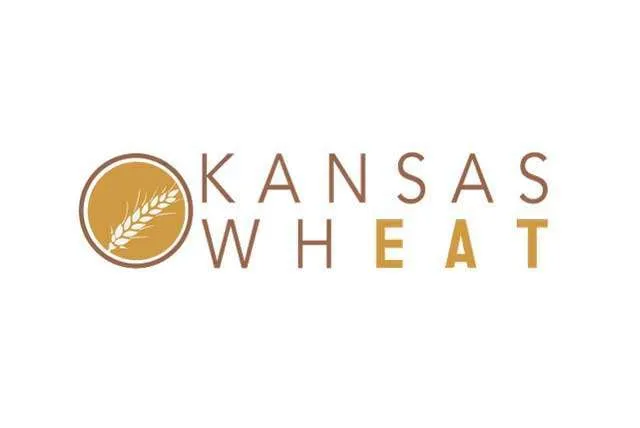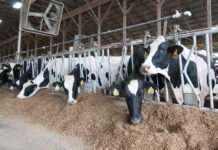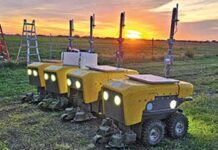For audio version, visit kansaswheat.org.
Tyler Ediger and his father Darwin are seasoned veterans of the National Wheat Yield Contest, having submitted entries from their farming operation near Meade since the start of the contest six years ago. That experience —combined with informed management and nearly perfect growing conditions — made it no surprise that the father-son duo took first and second place for the state of Kansas in the 2021 contest.
In the dryland winter wheat category, Tyler took the top Kansas slot with a final yield of 125.66 bushels per acre. The entry also earned Ediger the fifth-place “bin buster” award in the national winter wheat-dryland category. Darwin took second with a final yield of 123.48 bushels per acre. Both entries were WestBred WB4792.
“I don’t know what else I could have done to make it a more perfect growing season,” Tyler said. “It all came together.” The Edigers’ operation is all dryland and has been fully no-till for close to two decades. As seed dealers as well as wheat growers, they focus on variety selection to maximize yield potential. They also do comprehensive soil testing, which allows them to apply nutrients by the acre, not just by the field.
“We focus hard on varieties, so when we’re planting, we know which fields are probably going to end up being a contest entry,” Ediger said. “You have your everyday performers that just do good, but then you have your varieties like 4792 that you know can blow the lid off.”
The Edigers have planted WB4792 for three years on their farm, and Tyler said it has some of the best yield potential he has seen. It’s been a high yielder with high test weight, but it needs to be sprayed for head scab if it’s a concern in the area.
“It’s a higher management wheat, and it’s got great straw strength,” Tyler said.
Beyond variety selection, Tyler credited the growing season’s weather as a substantial factor in the success of this year’s entry and their overall crop.
In fall 2020, the Edigers planted wheat a week or so earlier than normal to take advantage of available moisture. The Edigers also utilized seed treatments to protect the wheat seeds, including fungicide and insecticides — the latter to address threats from grasshoppers and aphids.
The Edigers also top-dressed their wheat in October, perfect timing before snows fell in October. More snow in November helped carry the wheat through the winter, important as little moisture fell until April.
“We were able to get our nitrogen in, which I think proved pretty beneficial for us,” Tyler said. “That gave us the tillers we needed, and the plant had everything it needed when it was ready to green up in the spring.”
April showers arrived following a winter with no freeze damage or winterkill concerns. The Edigers also applied a split application of a generic foliar fungicide for stripe and leaf rust at flag leaf. He said the varieties that yielded really well this year held up to the stripe rust and leaf rust. They also put down a Prosaro fungicide for head scab at flowering, which Edger said paid off this year.
Wheat harvest finished before summer rains delayed harvest progress in other parts of the state. Harvest went well, but Tyler admitted picking which part of the field to use for the final entry is one of the hardest parts of entering the yield contest.
“The yield contest is hard because we’re trying to get wheat cut and then to try and single out a spot, and then the combine drivers are saying, ‘hey, it’s good over here’ and ‘no, it’s better over here,’” Tyler said. “You don’t ever get the best part of the field, but you try.”
Harvest stress aside, Tyler said entering the wheat yield contest has made them examine their production practices from start to finish and break down which factors they can adjust to improve next year’s wheat crop.
“It’s a good exercise to the farm, to learn what it takes to make yield and where those yields can be found,” Tyler said. “It doesn’t just benefit those acres; it benefits your whole farm.”
As Tyler pointed out, continuous learning is the best part of entering the National Wheat Yield Contest, so a flawless entry is not the goal.
“Don’t stress out about it; just harvest your wheat,” Tyler said. “Don’t strive for perfection, but just do your best.”
For more details on the winning entries and to review the official rules and entry details for the 2022 contest, visit yieldcontest.wheatfoundation.org.
###
Written by Julia Debes for Kansas Wheat





